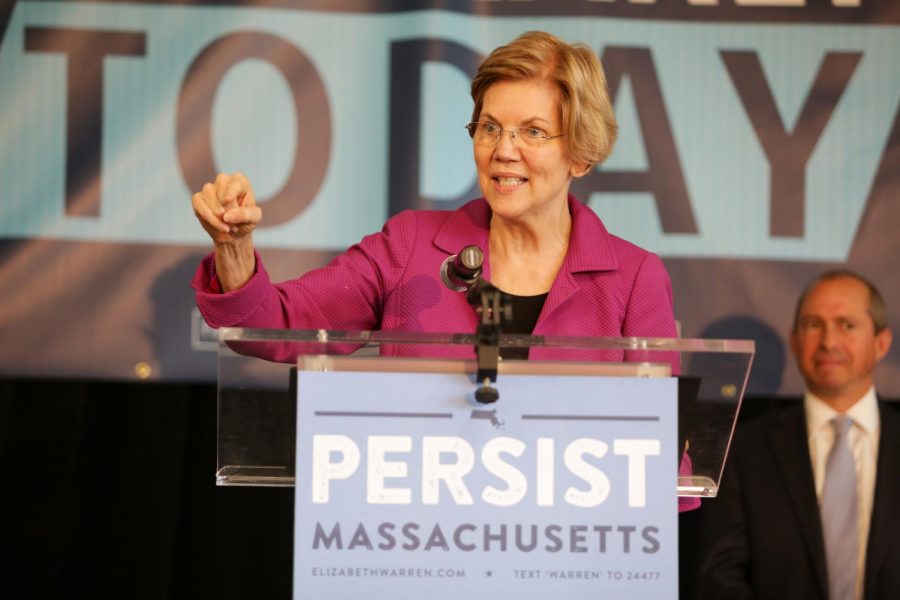Elizabeth Warren. Kamala Harris. Cory Booker. Tulsi Gabbard. Maybe even Bernie Sanders or Beto O’Rourke. The list goes on.
The list of people running for President of the United States in 2020 keeps getting longer, sometimes eliciting caution from concern trolls. There’s too many people running. There’s no clear leader. It’s a power vacuum left after a schism of the left.
All of these interpretations are either baseless, wrong or forgetting that we only just entered the year 2019. It’s a good thing people are lining up to take on President Trump in the next election, and it has everything to do with transparent discussion, better vetting of candidates and competition.
In 2016, we essentially had two choices — Bernie Sanders and Hillary Clinton, unless you count early dropouts like Martin O’Malley — and between the pressure to unite, the passionate nature of Sanders’ movement and doubts about the most feasible candidate, the primary seemed like a civil war.
I reckon it wasn’t: the problem was a high demand for discussion with little supply for it. Sanders’ revolutionary movement provided an optimistic vision and meat behind bold policies, but it was dissuaded by party-line voters who thought his imminent loss in the primary was a reason to stop challenging the eventual candidate. But it is transparent discussion, not avoidance of dialogue, that creates unity.
Having many choices this time around is exciting news. First, it holds the party accountable toward holding debates. The Democratic party held fewer in 2016 than in previous years, but it looks like they are nudging the number of sanctioned debates from nine to 12.
Through a democratic, open process and discussion, we can get so many more issues out in the open, enabling a more diverse array of values to be brought to the public eye.
Election watchers love to think they are the “silent majority,” making claims that “Americans like this” or “Americans are sick of that.” But voters left of the median are highly diverse, both demographically and ideologically. With so many choices, fewer voters will feel silenced or underrepresented in the political process. One’s favorite candidate might lose, but not without a fight — and a candidate built by the many is better than one choice beating out another.
Variety might lead to hostile debates, but this is a good thing. Candidates should be vetted earlier rather than later for their background, voting record or policy positions. It forces them to prepare their responses and confront these issues head-on. Sens. Kamala Harris and Cory Booker, for example, have begun to reconcile their past decisions regarding criminal justice and regulating the healthcare industry, respectively, with the campaigns they aim to run.
If the problem is too serious, it allows the elimination of risky candidates. Virginia Democrats are learning that the hard way with Gov. Ralph Northam, who is in hot water for being included in a yearbook page with Ku Klux Klan and blackface-related imagery. Given that this racist humor transpired during Northam’s college days as a functioning, educated adult, this would have been important to know during the election season in 2017, which was carried on the backs of African-American voters.
Finally, competition is good in a primary. Polling will help us determine whether candidates are connecting to winning ideas. It will also help disaggregate different focus groups within the party and better define what people are seeking in a candidate. Attractive candidates won’t drop out without demanding compromises, which will make the eventual candidate better.
What about electoral problems, like no candidates winning a majority or another showdown in the convention? If that’s a worry, let’s get the show on the road. The Democratic Party proportionally allocates most votes, meaning it will be difficult for a minority candidate to hijack the primary like President Trump did on the Republican end. So, we have until mid-2020 to start the process of bargaining.
It seems so soon to take on another election, and I’m cognizant of this fact. But readers and students of the University of Massachusetts who care about the outcome next year shouldn’t wait. The 2020 campaign has started, ready or not, and avoiding that begets apathy. Young people are a growing demographic, and if we want to see a candidate that sees our top issues — not to mention student debt — we need to push these candidates now.
How? Make small donations to your favorite candidates. Write a letter-to-the editor or join the Massachusetts Daily Collegian’s op-ed team. Join a campaign. The most important effort, though, is free and easy: talk to your friends and family about who you want to see running. Don’t wait for the news frenzy — you power the news. Make your intentions known today.
James Mazarakis is a Collegian columnist and can be reached at [email protected].



















